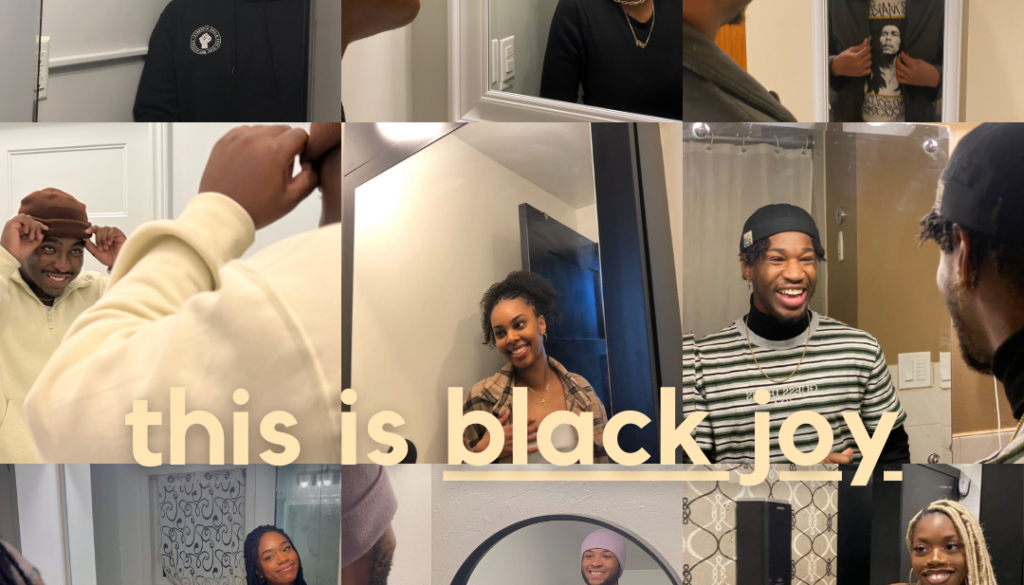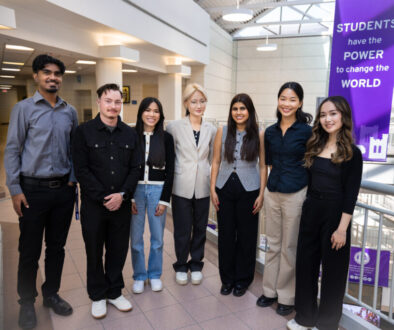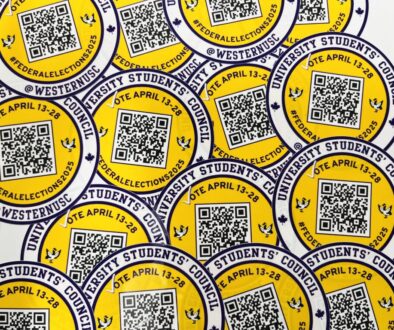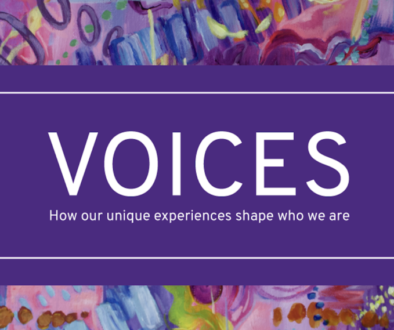Black History Month Recap: Black students on campus inspire the future and honour the past
The USC’s Ethnocultural Support Services (ESS) and Black Students’ Association (BSA) spearheaded programming to honour the contributions of Black individuals in history while looking forward to inspiring the future with Black Joy.
BSA’s events highlighted different dimensions of Black excellence, joy, triumph, and recognized challenges of the past and present. Their programming for Black History Month involved:
- ‘Subjects of Desire’, a thought provoking movie screening
- ‘Valentine’s Day Reflection’ to highlight Black love
- Partnering with Western Student Experience to bring ‘Community of Care’ event to discuss past challenges in a safe space
- A collaboration with Kings’ University College Student Council for ‘Western’s Black Trailblazers Webinar’
- ‘Black Excellence At Western’ showcasing the past, present and future of Black triumph
- A Professional Apprenticeship and Mentorship Program
- ’Book Campaign’ to highlight Black literature
- ‘Black Renaissance’, the closing ceremony in collaboration with University Students’ Council
BSA’s campaign was focused on inspiring the future generation while also providing a platform and safe space to discuss critical topics surrounding Black lives. “We want to celebrate Black people and highlight them in the way it hasn’t been done before… in our themes, we are also talking about objectification of Black women and mental health within the community… talking about different topics that we don’t always get a platform to talk about,” said Madison Milanczak, Co-President of BSA.
Ethnocultural Support Services’ campaign for Black History Month ‘This is Black Joy’ was spearheaded by Angie Antonio, the Community Outreach executive and Azza Osman, the Events executive. The campaign showcased Black Joy within Black-identifying members of the Western Community. Ethnocultural Support Services released a very special BIPOCalypse episode that discusses Black joy and the Black experience on campus.
“Ethnocultural Support Services is creating a campaign to highlight Black Joy and what it looks like for students, and hoping the process can remind them of joyous memories—the joy and happiness of celebrating Black culture,” said Adje Eversley, Coordinator for ESS.
ESS issued a special episode of their BIPOCalypse podcast titled ‘This is Black Joy’ where Eversley shared, “Black identifying and past and previous ESS members talk about our Black experience at Western, having gratitude for our Black culture and talking about what Black students and allies can do to continue to spread Black joy in personal and professional settings.”
Black identifying students on campus aimed towards changing the discourse around Black History Month, honouring the challenging past and moving towards highlighting how Black individuals are the future.
“Through our events we hope students understand that Black History is still ongoing. It’s about things that happened in the past but problems are still ongoing. Black students, faculty, and alumni are still surviving while doing such amazing work. With recognition comes realizing that it’s time to celebrate and highlight the diversity of student voices at Western,” said Ezy Ndukwe, Co-President of BSA.
“We want to change the narrative. It’s often associated with trauma, but we wanted to do a different approach where it’s celebratory and [highlights] triumph and courage. There is more to Black people and culture than just being strong enough to overcome turmoil,” explained Eversley.
Black identifying students showcased brilliance, beauty and diversity in their campaigns during the month of February. “Black History is now, we need to highlight all the amazing things we are doing” said Milanczak.
Black History Month brought a unifying community in support of Black culture while uplifting the diverse dimensions of Black joy and triumph.
“This year is really special to me. When I was in first year, BSA was the only one doing things from my perspective, but slowly over the years I’m seeing how it’s changing, how so many individuals on campus are taking active roles. Going on social media and seeing different aspects of student life taking an active role in Black History Month… it’s a societal effort to give this a platform it deserves,” explained Ndukwe.
The success of Black History Month at Western was an amalgamation of Black students on campus and organizations who worked together to build inspiring and uplifting programming.
“I am really grateful to my team who planned and came up with the campaigns, delivering the content which Black people needed, listening to the feedback from students on campus. In speaking to people and being Black students ourselves, we realize that we want to present resources which people need,” said Eversley.
Showcasing achievement goes beyond recognition as it becomes inspirational. “It is really easy to dwell on the negative but I wish for students to see themselves and others in a joyous light, showcase the positive aspects of Black culture. Their Blackness transforming into the successful and amazing people they are today and in the future,” explained Eversley.
“We are Black students expressing our Black identity,” Ndukwe said in response to the increased support from Black identifying individuals on campus working towards building the visibility of Black culture.
“Some members of ESS are putting together a list of community involvement opportunities that target BIPOC students. We hope these resources can be passed on to future team members or anyone who is an ally and wants to take a step of action. I encourage people to support BIPOC businesses,” said Eversley.
Milanczak encourages students to access resources available to Black identifying students, including support services such as Elpizo Counselling Services and SA Counselling Services, and to support Black-owned businesses in London. Resources and information about Black-owned businesses in London can be found in BSA’s Linktree.
Western’s Black identifying students moved Black History Month beyond the constraints of past challenges, and described how black history is ongoing, while increasing the visibility of Black culture and highlighting Black Joy, excellence, and triumph.





